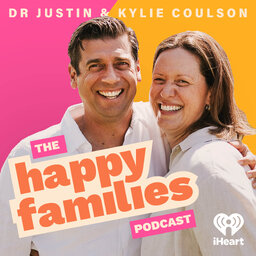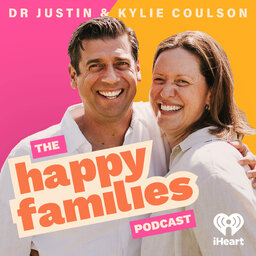#1149 - The 2025 Family Reboot: Using The WISE Approach
Justin and Kylie kick off 2025 with a powerful discussion about resetting family life using their WISE Family Reset framework. After experiencing burnout in 2024, they share personal insights about slowing down and making intentional changes for the year ahead.
Quotes of the Episode:
"We're not striving for perfection. We're striving for small, incremental changes." - Justin Coulson
"It's not about getting more things done. It's about getting the right things done." - Greg McKeown
Key Points:
- The challenge of feeling constantly busy but not productive
- How burnout affects family dynamics and personal wellbeing
- The importance of creating space for personal reflection
- Introduction to the WISE Family Reset framework
The WISE Family Reset Framework:
Work out what matters
* Create personal space for reflection
* Understand individual and family priorities
Implement tiny changes
* Start with small, manageable adjustments
* Avoid overwhelming yourself with too many changes at once
Sync as a team
* Get everyone involved in the planning
* Create buy-in through collaboration
Encourage, don't nag
* Focus on positive reinforcement
* Have important conversations at the right time
* Avoid being the "police" when it comes to rules
Resources Mentioned:
Book: "Essentialism" by Greg McKeown
Website: happyfamilies.com.au
Action Steps for Listeners:
1. Schedule some "escape time" for personal reflection
2. Identify one small change to implement this week
3. Plan a family meeting to discuss priorities for 2025
4. Practice encouragement instead of nagging
 Dr Justin Coulson's Happy Families
Dr Justin Coulson's Happy Families


